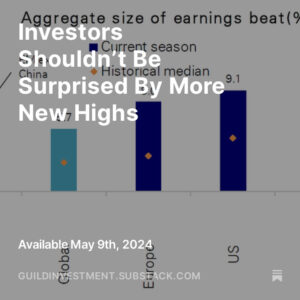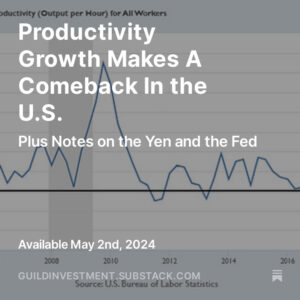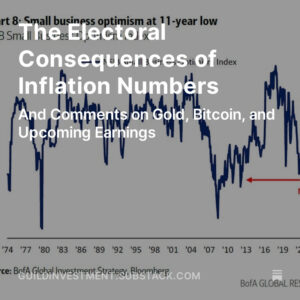The overall market indices in the U.S. have moved sideways, near all-time highs. Many former high-flyers have corrected, with formerly exuberant cryptos and SPACs registering volatility and declines, suggesting that the market is already experiencing a sector by sector correction. The S&P 500 may see more correction soon, perhaps registering 5–10%.
With earnings season underway, analysts will be parsing companies’ results and projections carefully to test the ongoing recovery and reopening thesis. We believe that thesis of economic growth and big corporate profits in 2021 is inarguable, although as we noted last week, we do see a variety of near-term risks that could provide the occasion for a correction. Primarily these near-term risks are geopolitical, with Russian and U.S. ambassadors both being temporarily recalled to their home countries amid rising tensions. They are also economic, including market participants’ response to inflation numbers when the data begin to lap last year’s sharp pandemic-driven price declines. Those numbers, or rising rates at the long end of the curve, could jar markets’ complacency.
Of course as we have often said, we have plans for that inflationary eventuality. (Next week we’ll provide an update on our in-house, non-massaged inflation metric, the Guild Basic Needs Index.) One focus of attention for us is on industrial metals critical to the build-out of electrification infrastructure, particularly copper; these could be a lasting trend and provide an element of defense in a nascent inflationary environment. Don’t be surprised to see food prices move substantially higher in coming weeks. Due to numerous factors we believe for the next few months food cost will go up dramatically. This could could hurt fast food companies who will have to absorb higher food costs.
While gold has languished, perhaps having some government-skepticism liquidity drained out in favor of bitcoin, we remain positive on gold as a long-term perennial hedge against inflation and fiscal and monetary irresponsibility.
Thanks for listening; we welcome your calls and questions.







